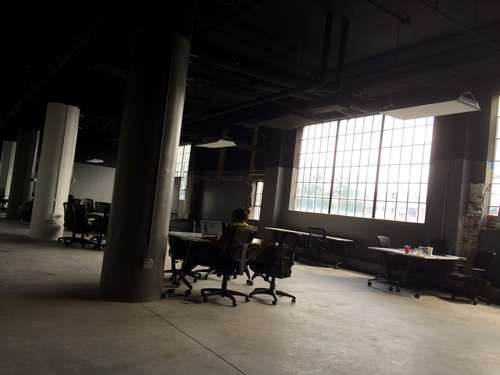Bithell Games' New Reality in Game Development
The video game industry is no stranger to upheavals, but recent news from Bithell Games is stirring up a bit of a shockwave. Known for beloved titles like Thomas Was Alone and the cult-followed Tron: Catalyst, the indie game studio is now facing a major restructuring. The studio’s founder stated that due to ongoing economic challenges and a stalled project pipeline, Bithell Games is laying off the majority of its full-time staff.
This news might leave longtime fans and industry observers wondering what went wrong and how an iconic company known for ingenious game design could be forced to downsize so drastically. Life in game development can be unpredictable—much like a roller coaster that sometimes takes sharper drops than anticipated.
The recent developments have sparked heated conversations across industry forums and social media channels. Are these layoffs a temporary setback or a sign of more river-like currents of change sweeping through the indie game world? As we dig deeper, surprises may still lie ahead for this beloved studio.
Bithell Games' Decision and Studio Restructuring
In this section, we explore the core reasons behind Bithell Games' difficult decision to reduce its workforce. The studio has long been heralded for defying the odds in a competitive realm, but even stars like these sometimes face their dark days.
The decision to let go of most full-time staff wasn’t made lightly. Bithell Games, famed for Thomas Was Alone and its efforts on Tron: Catalyst, has found that without a new project in the pipeline, maintaining previous levels of output simply isn’t sustainable. The layoffs are part of an ongoing restructuring process aimed at redistributing resources toward more viable, sustainable game development projects.
This move has stirred up a mix of emotions among former employees and industry watchers alike. Some describe it as the painful parting of a family, while others view it as a strategic pivot in an unpredictable market. It appears that even the creative minds behind some of the game industry's most heartfelt titles now face the realities of economic pressures.
Economic Challenges in the Video Game Industry
Economic pressures loom large in the game development realm, and Bithell Games is now a case study in how even innovative studios can be affected. Let’s take a closer look at the factors that have led to such drastic decisions.
Developing games, particularly for an indie design studio, is like navigating a maze—filled with unexpected twists and turns that can arise from market saturation or shifting consumer interests. The full-time staff layoffs at Bithell Games came at a time when industry economics are in flux. Rising development costs, increasing competition, and a scarcity of high-budget projects have placed unique economic weight on smaller studios.
Many in the industry have commented that the economic climate mirrors a game of Jenga—one wrong move, and the whole structure can tumble down. While larger companies might absorb the shock, these changes hit indie studios harder due to their limited resources. For Bithell Games, this restructuring is their way to realign priorities and focus on streamlining processes for future projects.
This moment also invites us to reflect on broader industry news and trends. The recent string of studio downsizings across the video game industry reminds everyone that creative passion must always contend with fiscal realities.
Impact on Game Development and Future Prospects
The staff reductions at Bithell Games are more than just a numbers game—they represent a shift in how this well-loved studio will approach game creation moving forward.
With the majority of its full-time team cut, Bithell Games will undoubtedly feel the impact on its project pipeline. Fans of titles like Tron: Catalyst and Thomas Was Alone may wonder if this restructuring signals the end of an era. However, the studio’s leadership has emphasized that this is not a wind-down but a strategic refocusing.
It is almost as if the studio is recalibrating its approach to game design. Cutting costs and streamlining operations, they are now positioned to concentrate their efforts on future endeavors that can meet market demands more effectively. The story here is one of adaptation rather than defeat. The video game industry has seen many a phoenix rise from industry news about gaming layoffs and restructuring. This may be just another chapter in the ever-changing book of indie game development.
Moreover, there remains hope that the resilient spirit of game developers might lead Bithell Games to find new ways to produce innovative, engaging titles even after these difficult choices. Such a reshuffle might open up opportunities for collaborations or projects that align better with the current economic landscape.
Looking Ahead: Navigating a Changing Industry
Here, we explore what the future might hold for Bithell Games and similar studios in today’s volatile environment. It’s a pivotal moment in game developer news, hinting at industry transformations that could reshape the landscape of game development entirely.
While the news of laying off the majority of full-time staff has rattled many, it doesn't spell the end of creativity or innovation at Bithell Games. The layoffs are a reflection of the broader challenges faced by many in the video game industry—an industry marked by passionate game design, yet marred by unpredictable market forces.
Bithell Games’ situation is similar to what many other indie studios have experienced in recent years. With shifting consumer expectations and a fiercely competitive market, game development has gradually become more of a balancing act between creative exploration and economic practicality. Professionals in the field are known for their resilience, and this situation is no different. It forces all of us to reassess how sustainable game creation can be, and whether a new model of studio management might be necessary in these testing times.
Local community discussions on gaming forums and Reddit threads have noted that even amidst such industry changes, the spirit of game creation remains strong. It’s a reminder that every downturn is often followed by an upswing, much like a well-timed comeback in a much-loved game series.
The Broader Industry Context
This whole scenario isn’t occurring in isolation. Across the video game industry, we’re witnessing similar trends—studio downsizing, restructuring, and layoffs. The economic game changes have started to ripple across indie studios, pitching a challenge to creators who must now continue to innovate under tighter budget constraints.
The Bithell Games layoffs are a microcosm of broader industry news. Game developer news from other corners of the industry suggest that other studios facing financial hurdles might soon follow suit by slimlining their teams. The ripple effect is a sobering reminder that even in a young and innovative field, the old rules of supply and demand ultimately hold sway.
This overarching context might be the wake-up call for a more sustainable, forward-thinking approach to game development. Even as the industry experiences these downturns, the exchange of creative ideas and passion for game design fuels its recovery and transformation.
Conclusion: A New Chapter Begins
The unfolding story at Bithell Games, with its ties to fan favorites like Thomas Was Alone and Tron: Catalyst, is a testament to the resilience required in game creation. Layoffs and restructuring are difficult but sometimes necessary measures to adapt in an ever-changing economic landscape.
While the immediate outlook appears challenging, this restructuring may pave the way for a new chapter in indie game development. The future remains uncertain, yet full of possibility—a theme well understood in the world of video games where every setback can lead to an epic comeback. In the end, the ongoing saga of Bithell Games is a real-life narrative of adaptation, creativity, and economic reality intersecting in unexpected ways.




